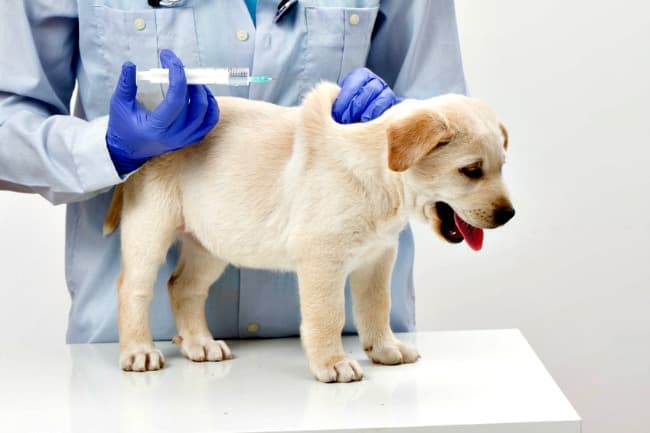
Image Source: Google
As a responsible pet owner, one of the most important things you can do for your puppy is to ensure they receive all the necessary vaccinations. Puppy's Vaccinations play a crucial role in protecting your puppy's immune system and overall health. Vaccines are designed to stimulate an immune response in your puppy's body, preparing them to fight off potential diseases and infections.
When a puppy is born, their immune system is not fully developed, which makes them more susceptible to illnesses. Vaccinations help to strengthen their immune system by introducing small amounts of disease-causing agents, such as viruses or bacteria. These agents are either killed or weakened, so they do not cause an actual infection but trigger the immune system to produce antibodies. These antibodies then recognize and attack the specific disease-causing agents if the puppy ever comes into contact with them in the future.
One of the most common and essential vaccines for puppies is the distemper vaccine. Distemper is a highly contagious viral disease that affects the respiratory, gastrointestinal, and nervous systems. It can be fatal if left untreated. The distemper vaccine helps protect puppies from contracting this deadly disease and ensures their immune system is strong enough to fight it off.
Another critical vaccine for puppies is the parvovirus vaccine. Parvovirus is a highly contagious and potentially life-threatening virus that primarily affects the gastrointestinal system. It causes severe vomiting, diarrhea, dehydration, and can lead to death, especially in young puppies. Vaccination against parvovirus is crucial in protecting your puppy from this devastating disease and preventing its spread.
Rabies is another vaccine that is not only essential for your puppy's health but also required by law in most areas. Rabies is a viral disease that affects the nervous system and is typically transmitted through the bite of an infected animal. It is a fatal disease that can also be transmitted to humans. Vaccinating your puppy against rabies not only protects them but also helps to prevent the spread of the disease to other animals and humans.
Aside from these core vaccines, there are other optional vaccines that you may consider based on your puppy's lifestyle and environment. For example, if your puppy will be spending time in boarding kennels or interacting with other dogs, the bordetella vaccine, also known as the kennel cough vaccine, may be recommended. Kennel cough is a highly contagious respiratory infection that can spread quickly in environments where dogs are in close proximity.
It's essential to follow a proper vaccination schedule recommended by your veterinarian. Puppies typically receive a series of vaccines starting at around 6-8 weeks old and continue up to 16-20 weeks of age. These vaccines are given in multiple doses to ensure adequate protection and boost the immune response. Regular booster shots are necessary throughout your puppy's life to maintain their immunity.
In addition to vaccinations, it's important to provide your puppy with a healthy diet, regular exercise, and a clean living environment. A well-balanced diet and exercise help to support their overall immune system, making them less susceptible to diseases. Maintaining good hygiene practices, such as regular grooming and cleaning of their living areas, also reduces the risk of infections.
Remember, vaccinations are a critical part of your puppy's healthcare plan. They not only protect your puppy from potentially life-threatening diseases but also helps to prevent the spread of these diseases to other animals and humans. By staying up to date with your puppy's vaccinations, you are ensuring their immune system is well-equipped to fight off any potential threats they may encounter throughout their life.